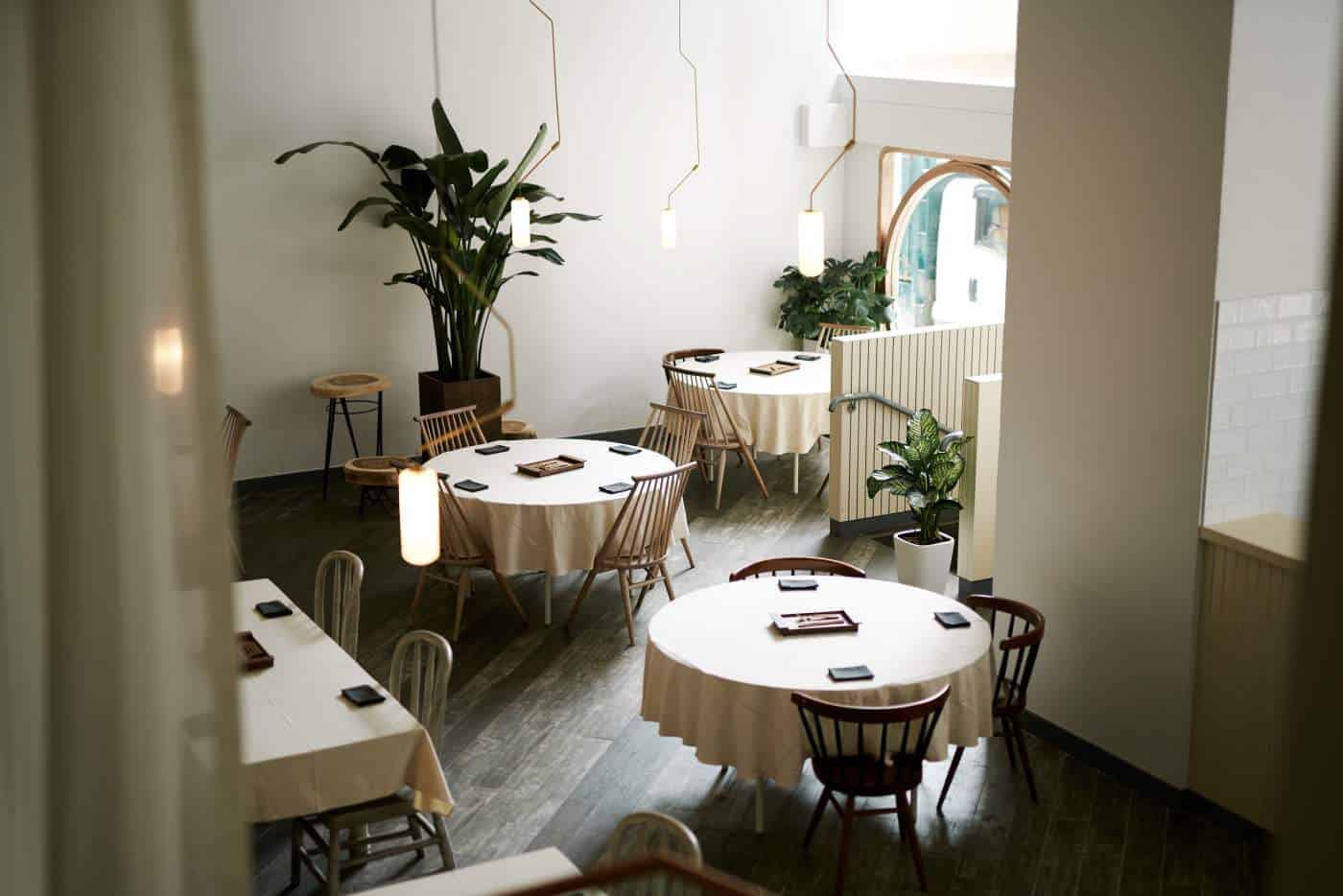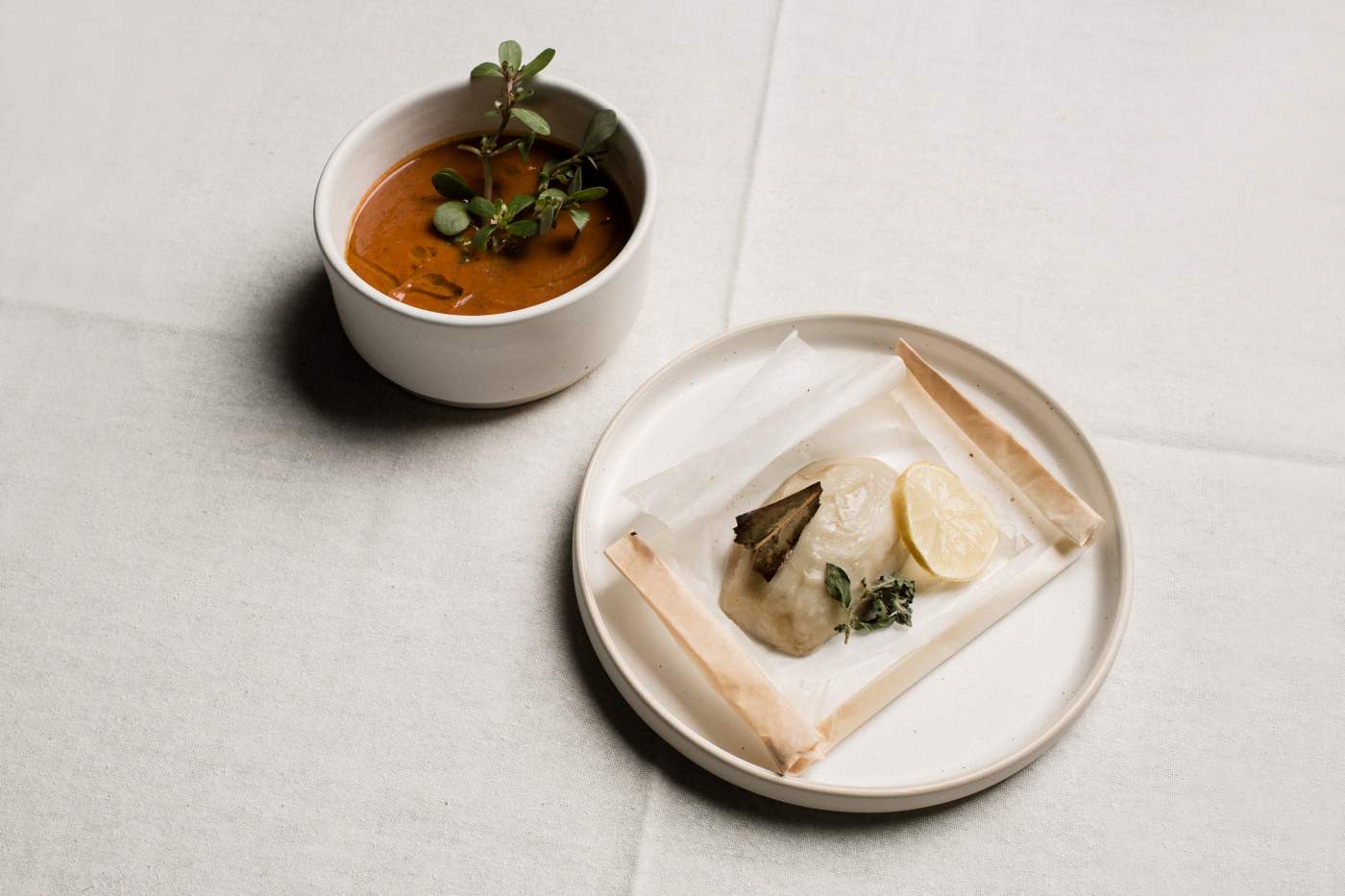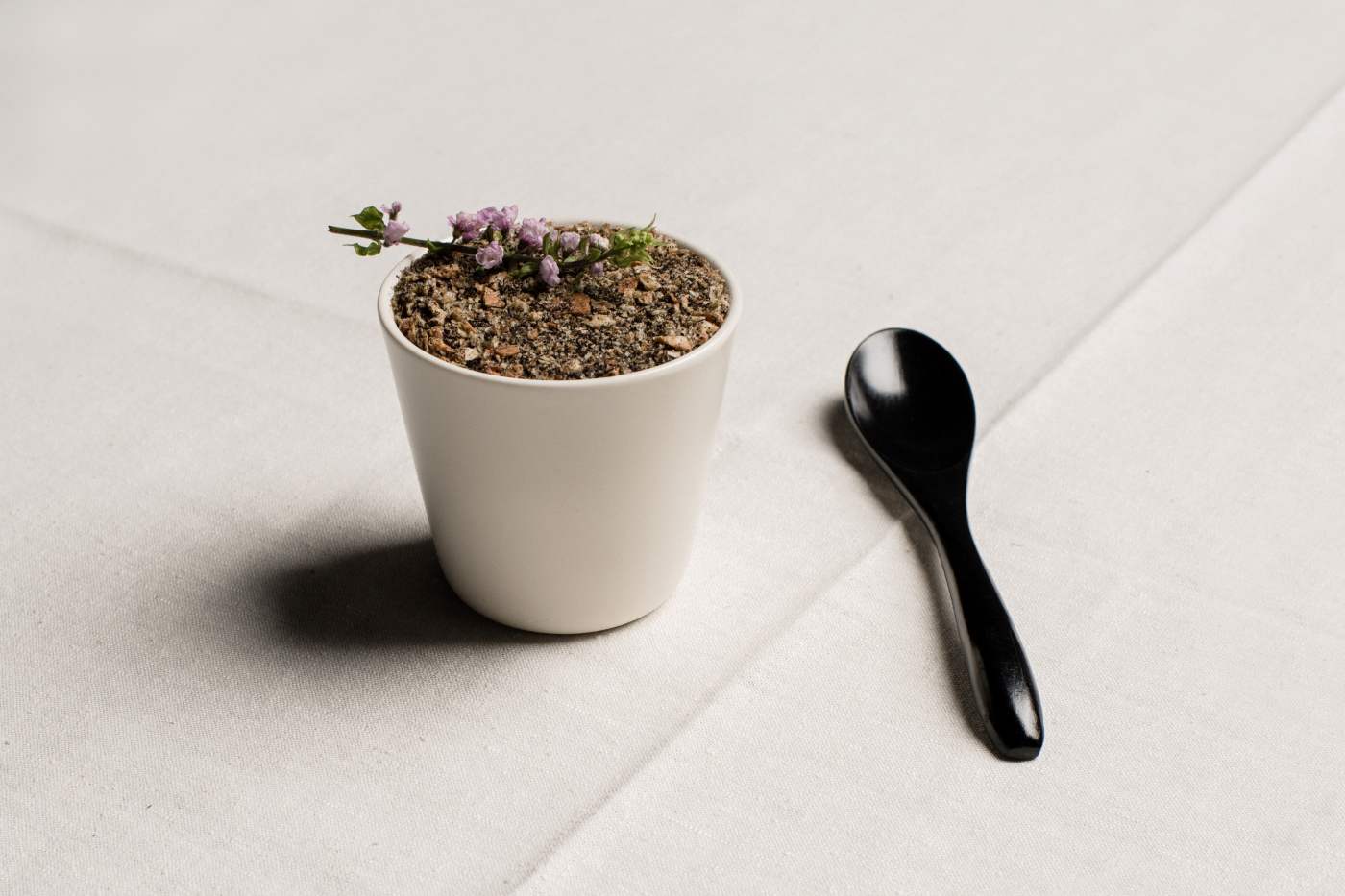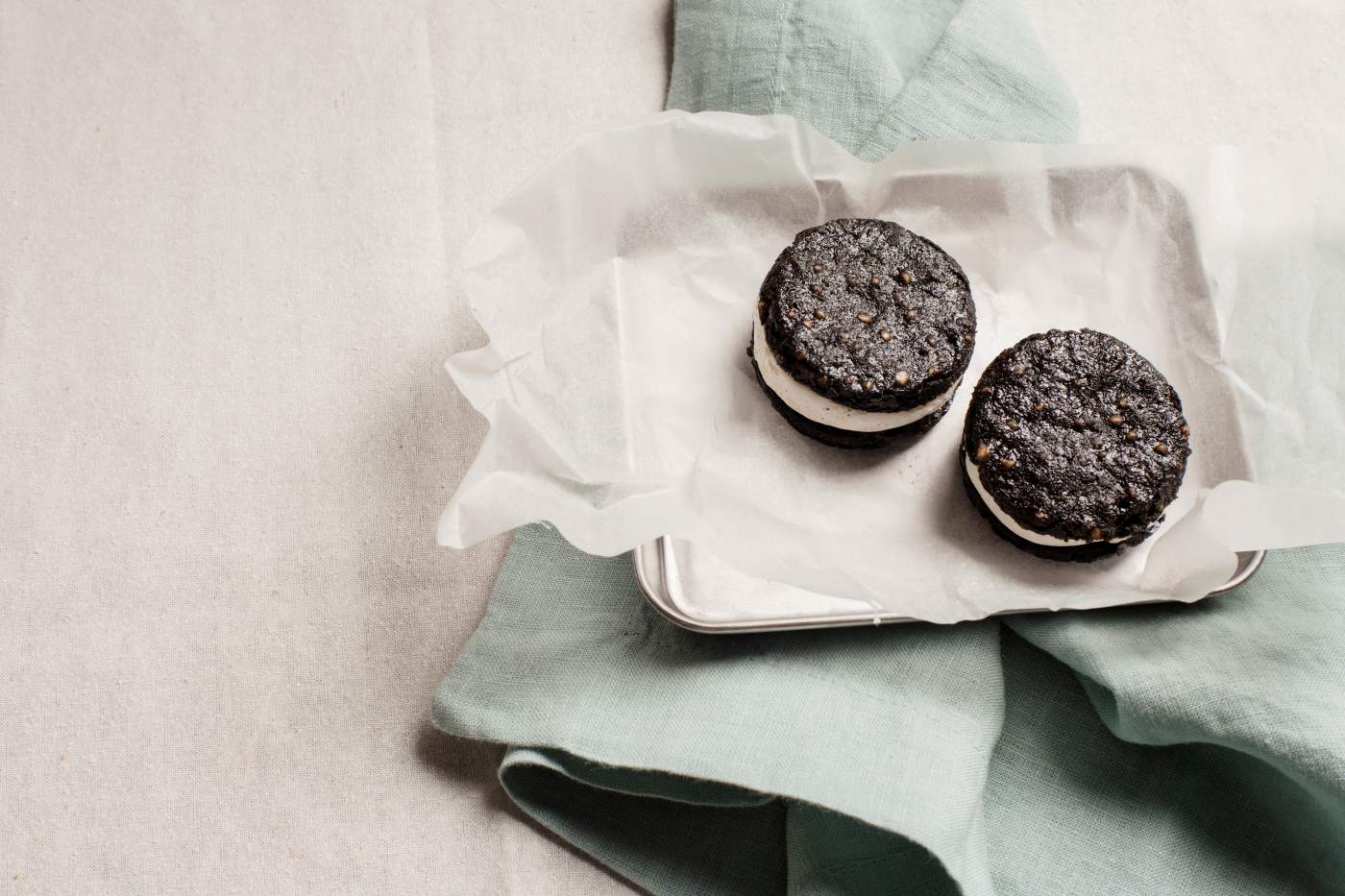
an introvert by nature and appear quiet and reserved. But that is because I choose to listen and
observe before deciding what to say or my next course of action. When I speak up, I make sure
my message is heard.
Grassroots Pantry is a pioneer in Hong Kong’s plant-based dining revolution, keeping at the forefront of the industry over the last 7 years pushing boundaries and exploring elevated dining experiences. An alumni of Le Cordon Bleu, Ottawa and several kitchen stints in Hong Kong top fine dining restaurants previously, Chef Peggy uses elevated culinary techniques with innovative approaches to spark conversation around vegetarianism. Chef Peggy Chan is a pioneering advocate in the island’s green-eating movement. “After having operated Grassroots Pantry for the last seven years, I felt that it was time for us to leave behind the platform that we have built, and allowed others to follow, and explore bigger ambitions.” Today, Chef Peggy Chan evolves her brand and vision with Nectar, launched in July 2019. Here, she candidly shared what it takes to be the forefront of establishing a plant-based cuisine restaurant, entrepreneurial advice for those starting out and how to seek new ways to advocate conscious eating.
Key learnings
1. Seek opportunities wherever you can. Besides Nectar, Chef Peggy launched various initiatives to educate diners on conscious eating:
- The Collective’s Table (2016) – This initiative aims to drive environmental awareness and to increase the potential for plant-based cooking among chefs and the food industry. Renowned chefs from across the globe are invited to explore, collaborate and put together a multi-course plant-based menu. Partial proceeds from these collaborations go to a charity of the guest chef’s choice.
- Pollen Lab (coming soon) – This is an educational platform for ongoing culinary exploration to showcase the possibilities and benefits of a plant-based diet. Through structured educational programmes, interactive workshops and cooking lessons, Nectar’s goal is to encourage members of the public to make more informed food choices.
- Collaborate with like-minded designers and artists who shared Nectar’s values and passion for sustainability. In addition, gather support from organisations that promote environmental awareness.
- Identified young graduates to give them an opportunity to showcase their work.
2. Your past experience might make fundraising and sustaining the restaurant a lot easier, but at the end of the day, it is your persistence, grit and ability to endure difficult times that will allow you to breakthrough.
3. Times have changed and our demands and eating habits have changed. To stay stagnant in a place of comfort is to refuse to grow. As a chef and restaurant owner, you are inclined to continuously create.
4. As a chef-restaurateur, you are expected to juggle various roles. Good planning and being organised helps, but coming to terms with not having personal time and being expected to be on call 24/7 also gives you an edge. Being able to hire well, manage well and retain staff well is also a challenge. Good communication, clear direction, having mutual respect and integrity (by sticking to your words) makes you a better leader, which in turn makes managing much easier.
What inspired you to be where you are now?
At a young age, I came to the realization that contemporary farming practices were cruel and barbaric. Slowly but surely, I cut out meat consumption in my life, first starting with beef and pork, gradually becoming plant-based altogether. I’ve been a vegetarian for almost 12 years now; Nectar is my way of providing alternative food options that cater to different needs while also providing nutritional content.
How did you know when to move on to a new chapter?
We don’t consider Nectar to be an overhaul, but rather a progression that can advance our advocacy of environmentalism in the food industry. As the names suggest, Nectar represents our natural growth. Grassroots Pantry was the initial seeding that blossomed over time. Throughout the years, we bore fruit and Nectar represents the next chapter in our evolution.

Tell us about the transition to the elevated Nectar.
The concept of Nectar involved stripping off what was unnecessary and no longer fits.
We began strategizing in April for the renovation to take place in July, and could really only afford 10 days to turn around a completely new restaurant. As a planner, we worked directly with vendors to make sure everything would arrive on time in order for our contractors to get the work completed. Layers of work were being done during the 10 days that we were closed, all of which had to happen simultaneously- menu completion, deep clean, electrical work, carpentry, painting, masonry, videography, finalising the branding, uniforms, curtains, freight of our tables, chairs and lights from Denmark. It was the craziest, yet most productive 10 days I had ever led and experienced.
With Nectar, we were very fortunate to curate a group of extremely passionate designers and artists who shared our values and passion for sustainability. While this approach requires more effort and energy than contracting the project to one large company, we believe in taking the extra time to support vendors who align with our corporate values.
For example, for our table cloths, placemats and linens, we worked with Redress, a local NGO dedicated to preventing textile waste and improving management of water, chemicals and carbon footprint.
As a chef and restaurant owner, I am inclined to continuously create. It’s all proven a very natural progression.
Chef Peggy Chan, Nectar
Can you take us through what takes into consideration in pricing your tasting menus?
The standard 30:30:30 menu costing algorithm does not quite apply to HK or any metropolitan cities for that matter. With the highest property rates in the world and increasing F&B wages, it is extremely challenging to sustain a business for more than 2 years, let alone make it profitable.
With Grassroots Pantry, we were able to feed tens of thousands of customers over the last 7 years by breaking even and maintaining our stance as a social enterprise. However, over the years, increasing costs throughout our society has reduced the middle market’s ability to spend on good, clean food, thereby impacting our ability to break even or survive. I recognised this over a year ago and began working on the next stages of our evolution. I knew that I was not about to jeopardise the quality of our products by cutting on high-quality nutrient-dense and organic ingredients, nor was I going to undervalue our work behind-the-scenes. So it only made sense for us to aim higher and elevate what we were going to serve, and how we served it to the community.
To add on to that, we wanted to also leverage our pricing strategy to raise awareness of sustainable initiatives and, for that reason, introduced a 3% carbon tax. Proceeds from this tax go towards the restaurant’s ongoing efforts to support organic producers, researchers, NGOs and social enterprises. We chose not to implement the conventional 10% service charge and instead encourage diners to tip their service staff according to performance.

customers on the possibilities of locally-sourced organic ingredients.” From Nectar’s Tasting Menu, Plastic: Shimeji Mushroom Bisque, Eggplant en Papillote
How different is it opening a restaurant now and back then?
As a pioneer of sustainable dining in Hong Kong, the key challenge we faced back then was to dispel the misconceptions surrounding plant-based cuisine. Some people think that cooking plant-based cuisine is simpler. However, the techniques, skills and combinations are often more refined and complex than what is offered in fine-dining restaurants. When you’re trying to recreate meat or dairy products using only plant-based ingredients, you need to use your imagination and become very creative.
As a business owner, this could quite possibly be the most challenging time in history to open a restaurant in Hong Kong due to the current atmosphere. Your past f&b experience might make fundraising and sustaining the restaurant a lot easier, but at the end of the day, it is your persistence, grit and ability to endure difficult times that will allow you to breakthrough.
What is the biggest challenge in running the F&B business?
As a chef-restaurateur, the biggest challenge is to juggle the many hats I wear. Good planning and being organised helps, but coming to terms with not having personal time and being expected to be on call 24/7 also gives you an edge. Being able to hire well, manage well and retain staff well is also a challenge. Good communication, clear direction, having mutual respect and integrity (by sticking to your words) makes you a better leader, which in turn makes managing much easier.
I would want to help women build self-confidence because confidence is the ultimate enabler. We would not rely on other people to dictate our worth and instead trust in our own abilities and perform according to our standards.
Chef Peggy Chan, Nectar
At the start of your career, what do you wish you had known?
I wish I knew people will not always be kind, or fair. After all these years, though, I now have an innate ability to discern who is sincere and genuine. Never judge a book by its cover!
Biggest mistakes you made and what did you learn?
In 2004, I dated my sous chef and was let go shortly after. From then on, I vowed never to date anyone I work with.
Chefs are learning together because we are finding that plant-focused culinary training is hard to come by. Chefs are seeking like-minded collaborations to share and learn.
Chef Peggy Chan, Nectar
What are your tips for those looking to start themselves?
I think knowing how to negotiate, understanding the economy and mastering the hiring process are useful skills to know. Whatever you want to do, it’s important to hone your business and people skills.

I wish people would stop telling me …
… that consumers aren’t interested in environmental issues. People are educated on climate change and are actively changing their lifestyles to reduce waste and limit their carbon footprint.
Where can people find more about your progress?
They can keep up to date on our latest dishes and news via Nectar HK Instagram and on my personal feed at here

Interview by Theresa Burhan. Words and photography credit by Chef Peggy Chan and Nectar.










1 comment
Great interview! Loved hearing about what it’s like to run a unique plant-based restaurant in one of the most food-centric places in the world 🙂